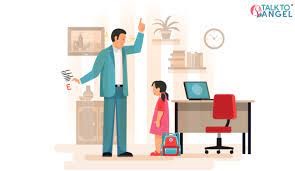
Hearing is without a doubt an important and essential part of our lives. It allows us to comfortably interact with our loved ones, and appreciate the sounds around us, be it music or the environment. What’s unfortunate is that hearing aid might suddenly decrease their ability to enjoy and appreciate the sounds around them.
In this blog article, we will attempt to give a wide overview of hearing loss and help you better understand the intricacies of hearing and hearing loss.
What causes hearing loss?
Most hearing loss happen gradually, especially when one ages and deficiency in hearing ability accumulates over many years. This process could be accelerated from prolonged exposure to loud noises, say for a person who works at the construction sector for a living, or it could be someone who listens to music on their headphones for extended periods of time every day. Hearing loss from old age could also be due to something as simple as the buildup of earwax in their ears, or the deterioration of organs involved in hearing.
Certain diseases or infections have also been known to lead to hearing deficiencies. For example, an autoimmune disease where the body’s immune system attacks its own cells, causing them to die is one of the possibilities. In the case of hearing loss, the cells involved in facilitating the person’s hearing ability gets killed off, resulting in hearing loss. This process could be triggered or hastened by certain treatments or drugs, in particular those for treating cancer. Chemotherapy helps to kill off cancer cells but if the site of treatment is close to the ear, cells involved in hearing receive collateral damage and their functionality is impaired.
Some hearing loss may occur spontaneously, such as due to a physical head injury, damaging the inner ear or nerves involved in hearing. Some hearing loss occur even at birth, and according to a study in 2017, an estimated 1.33 babies in 1000 are affected in developed countries, and an estimated 19 babies in 1000 are affected in developing countries that do not have properly established neonatal hearing screening programs.
The best way to protect our ears and prevent hearing loss is to minimize or avoid long-term exposure to loud sounds. If one’s work demands such exposure, one must take care to wear hearing protection properly, else it could lead to eventual deafness.
Different types of hearing loss
Before we discuss the different types of hearing loss, we should first briefly discuss how sound is picked up by our ears.
Sound enters the ear first through the outer ear, then through the ear canal. It then reaches the tympanic membrane, also known as the eardrum, and gets processed by hair cells in the middle and inner ear through complex functions, and a signal is sent via auditory nerves to the brain to be recognized and we interpret this as hearing sounds.
There are 3 established types of hearing loss – Conductive, Sensorineural and Mixed.
Conductive hearing loss is when sound has difficulty passing through the ear canal or reaching the middle ear. This could be due to something as simple as a buildup of earwax in the ear canal, or something more serious like an ear infection which causes a fluid buildup, blocking out incoming sound waves. This results in an overall lower amount of sound waves being picked up by the ear.
Sensorineural hearing loss is when the auditory nerves inside your ear are damaged, and their ability to transmit sound signals to your brain is hindered. As described in an earlier section, this could be due to deterioration from old age or from certain treatments and drugs.
Mixed hearing loss is simply a combination of both conductive and sensorineural hearing loss. The patient may have varying severities of the 2 types of hearing losses.
There are also acute hearing loss and chronic hearing loss, with the former happening suddenly such as due to trauma, and the latter referring to hearing loss that accumulates over a long period of time.
Consequences of hearing loss
There are many closely associated consequences of hearing loss that scientists have studied and found over the years.
Social isolation
Someone who has hearing loss may experience this from time to time, depending on the severity of the hearing loss. Not being able to hear and pick up what others are saying, they have to ask others to repeat themselves several times which is not socially appealing. Or worse – people may choose to speak less to them because it becomes harder to have an engaging and meaningful conversation. The end result is the person with hearing loss has less people to speak to and is at a higher risk of social isolation.
As humans, we crave social interactions, so being deprived of that need is not a good outlook.
Worse memory
Interestingly, hearing loss can worsen one’s memory capacity. This is suggested to be the case since the individual needs to allocate more attention or focus to what the other person is saying, in order to compensate for their weaker hearing. This in turns worsens the person’s capacity for cognitive functions, one of which includes their memory.
The longer the person goes on with their hearing impairment and the more severe their hearing is, the greater and faster their memory worsens.
Dementia
Particularly for older patients, hearing loss also can to dementia. This is further accentuated by the fact that people with hearing loss face social isolation, depriving them of social interactions, which is one of the key driving factors for dementia.
Speech and Language impairment
Some newborns are born with hearing defects due to genetics. Most of the time, they can be detected before they get discharged from the hospital through screenings, and get treated early.
However, if it is not detected early, not being able to hear sounds around them – especially voices, will hinder their ability to develop speech and language skills, and ultimately social skills.
Solutions for hearing loss
As discussed earlier, hearing loss is accumulated over many years for most people. They start to have difficulty understanding what others are saying, especially in a noisy environment. They tend to ask people to speak louder and switch their televisions to a higher volume just so that they can hear them properly. What solutions are there available for people with hearing difficulties? Depending on what the root of the problem is, solutions may vary and it’s best to have a trained audiologist offer their expertise.
Hearing aids
The most universal solution. Regardless of whether is it conductive or sensorineural hearing loss, hearing aids pick up sounds from the surroundings and amplify its volume to the hearer, just like what a microphone and speaker does, but packed into a small, portable and convenient device.
Earwax removal
Sometimes, the root of the problem can be as simple as a buildup of earwax in the ear canal. Removing it will improve one’s hearing, depending on how much earwax has accumulated and blocked out incoming sound.
Surgery
Surgery can be done on bones found inside the ear that help with hearing, or even to treat certain ear infections that affect hearing. Cochlear implants are a common surgical procedure to treat hearing loss as well.
Again, it’s best to consult a trained audiologist as they will be able to communicate and discuss the merits and problems carefully with each available solution to a patient in need of hearing assistance.
Conclusion
Some degree of hearing loss is inevitable for everyone at some point in life. But if it affects our daily lives and our interactions with friends and family, it is advisable to seek professional help and regain our hearing ability. Many patients tend to shy away from hearing aids or treatment because “they’re old already”, or “it’s too expensive”, but after receiving help, many patients also appreciate how their lives were more fulfilling and enriching.
The Hearing Centre – Award-winning Hearing Aids provider in Singapore
Concerned about your hearing or looking for hearing aids in Singapore? The Hearing Centre is an award-winning hearing aids provider in Singapore and we have a team of trained audiologists ready to serve you and your needs for hearing. We have served more than 500 patients over the course of 16 years. We strive to provide the best services, diagnosis, and maintenance of hearing aids to you and your loved ones. Get your hearing tested or hearing aids with us today!





